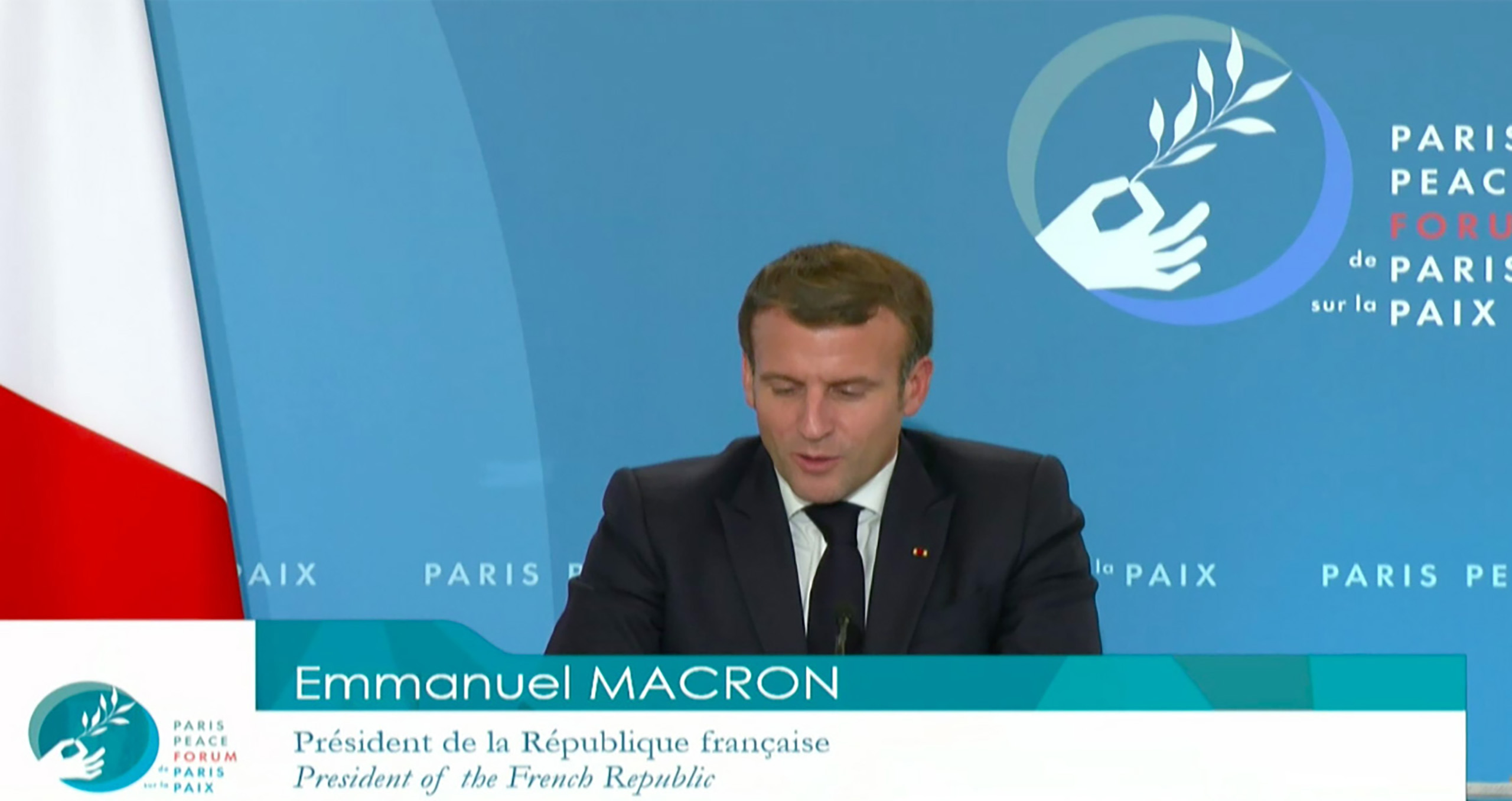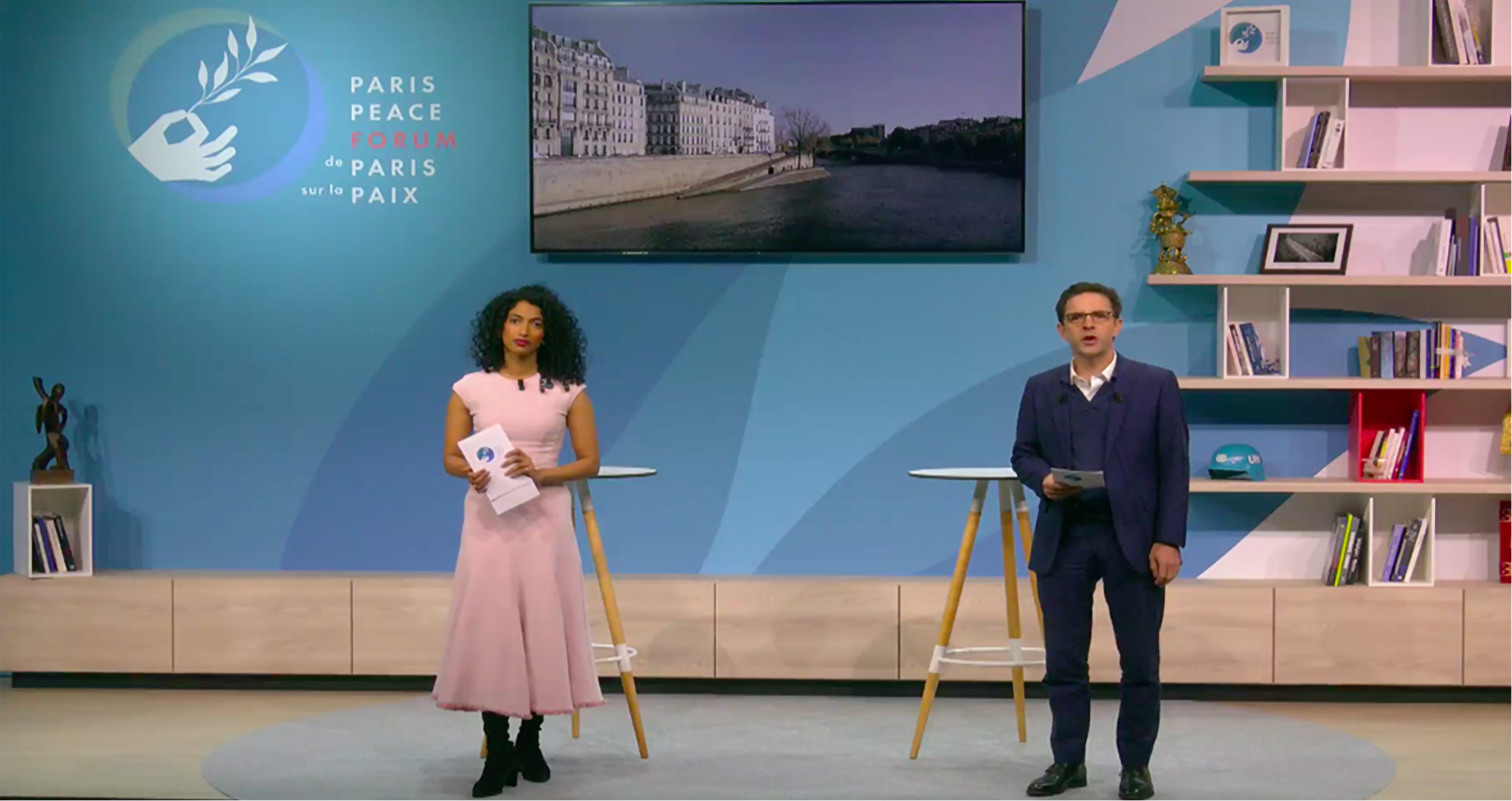A general overview of Paris Peace Forum 2020

A general overview of Paris Peace Forum 2020

Lorem ipsum dolor sit amet, consectetur adipiscing elit. Ut elit tellus, luctus nec ullamcorper mattis, pulvinar dapibus leo.
Trisha Shetty and Justin Vaisse, chairs of the Paris Peace Forum (Gurria et al, 2020).
The premises of the PPF is that international relations should not solely rely on states, but also on Non-Governmental Organizations (NGOs), which is why the forum had such a wide range of speakers. Indeed, heads of states such as Emmanuel Macron (French President) and Macky Sall (Senegalese President) took part in live debates, where other leaders such as Jacinda Arden (PM of New Zealand), Xi Jinping (President of the People’s Republic of China) and Narendra Modi (PM of India) sent video clips to testify on their commitment to peaceful relations between states amidst the pandemic (Gurria et al, 2020).
Leaders of international organizations such as Ajay Banga (CEO, Mastercard, and Chair of International Chamber of Commerce) Mari Pangestu (Director General, World Bank Group), Peter Maurer (International Committee of the Red Cross), Tedros Ghebreyesus (Director General of the WHO), and Nadia Murad (Nobel Peace Prize winner) were also present to offer insightful perspectives during the debates (Paris Peace Forum, 2020).
The three main priorities of this year’s PPF are: 1) having a global governance of health, 2) focusing on the economy in a post-pandemic world, and 3) making the most of this new digital world. In terms of health, there has been a global and financial commitment to Act-Accelerator to ensure that all countries, regardless of their status, have access to appropriate tools whilst combating the global pandemic (Paris Peace Forum, 2020). Indeed, the Act-Accelerator (Act-A) was launched by the World health Organization and its partners as a way to collectively join efforts to develop tests, treatments, and vaccines for the general population (WHO, 2020).
Economically, as mentioned in the forum, there is a global focus ensuring that we are not heading into a ‘tsunami of recession and economic problems.’ Public development banks account for 10% of the investments in humanitarian aid every year, wherefore, having representation of banks in the forum engages the conversation in a multilateral approach. Indeed, the sessions on ‘Finance in Common’ incorporated 450 organizations focusing on financial ways to encourage peace. They said that they will align their vision with the Sustainable Development Goals and climate goals to transition towards a green economy. In regards to the digital world, there is a need more than ever to engage with cybersecurity to ensure all parties are safe (Paris Peace Forum, 2020).
During the opening ceremony of the PPF, the French President, Emmanuel Macron, set out four main points that are crucial to take into consideration when coming out of the pandemic, that can be applied on a global scale. First, he urged the importance to consider guaranteed universal access to the vaccine, so that poor or vulnerable communities will not be discriminated. Second, he expressed his concerns about climate change and inferred the importance of that countries around the world, despite the global pandemic, align with the Paris agreements of 2015. Third, Macron focused on the crucial need to ensure that the global Covid-19 recovery strategy does not heighten the inequalities that are already present in the society. Lastly, the fourth aim is a pledge to protect human rights when countries around the world are taking more conservative measures. He pleaded for the need for a worldwide agreement (Paris Peace Forum, 2020).


Article by
Sarah Marine Surget
and by
Costadina Tsoukala-Steggell

Categories
Economy, Environment, Equality, Europe, France, Health, Human rights, Paris Peace Forum Series


